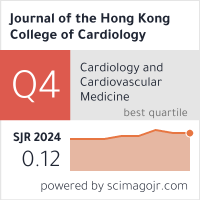Abstract
The use of percutaneous coronary intervention (PCI) with the procedural success and continuous technological improvements contributed to a better treatment of coronary heart disease also resulted in the development of acute and remote thrombotic complications. Environmental factors such as smoking significantly worsen unwanted cardiac events after percutaneous coronary intervention. The aim of this study was to determine the influence of risk factors (smoking) the number and severity of adverse cardiac events and its possible selective effect on the formation of acute and subacute thrombotic complications during the application of stents coated with paclitaxel (PES) and sirolimus-coated stents (SES). The study was based on a five-year follow-up of all consecutive patients at the Institute for Cardiovascular Diseases Dedinje in which are embedded drug-eluting stents with sirolimus (Cyphar) and paclitaxel (Taxus). Average age of the tested population was 68.4±8.4 years, of which 585 patients were men (83.4%) and 116 (16.6%) women. Four patients (0.6%) died. Myocardial infarction occurred in nine patients (1.3%). The overall incidence of MACE events was 14.5%, which was registered in 102 patients. Stent thrombosis, definite criteria according to ARC, occurred in 22 patients (3.14%). Probable stent thrombosis was observed in 1 patient (0.14%), possible stent thrombosis in 1 patient (0.14%). Sirolimus and paclitaxelcoated stents are safe and effective means of percutaneous coronary interventions conducted for treatment of atherosclerotic coronary artery disease. Research has shown a large impact of smoking as a risk factor in the development of adverse cardiac events.
Recommended Citation
Maja Stojanovic, Rade Babic, Zoran Stajic, Milica Cizmic, Violeta Iric Cupic, Acute and Remote Thrombotic Complications in Patients with Implanted Drug-eluting Stents; Influence of Smoking as a Risk Factor Journal of the Hong Kong College of Cardiology 2019;27(1) https://doi.org/10.55503/2790-6744.1008
Creative Commons License

This work is licensed under a Creative Commons Attribution-Noncommercial-No Derivative Works 4.0 License.



